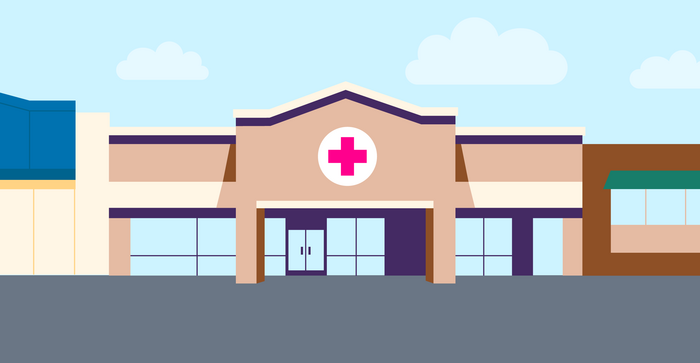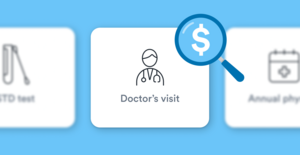Key points
- Urgent Care centers provide a convenient and affordable healthcare option for non-emergency situations.
- Urgent Care's focus on quality, service-driven, and consumer-focused healthcare has resonated with patients, particularly during the COVID-19 pandemic.
- Urgent Care centers bridge the gap between primary care and emergency care, offering a broad scope of services.
- Despite its growth and importance, Urgent Care still faces regulatory challenges and requires public support and awareness.
- Support for Urgent Care can be shown by visiting centers when in need of urgent medical attention, sharing positive experiences with others, and writing positive reviews online.

May is Urgent Care Awareness Month. Have you found yourself at an urgent care in the past year? If so, you aren’t alone. Urgent care is a vital and growing component of the health care landscape and we teamed up with the Urgent Care Association to understand the importance of Urgent Care and bring more awareness for this great health care resource.
Why Urgent Care?
Urgent Care has been a convenient and affordable healthcare option since the first Urgent Care centers started popping up back in the ‘80s. Injuries and accidents are an inevitable byproduct of being human; Urgent Care addresses these concerns better than any other healthcare system. And with the continued growth of the Urgent Care industry, it is clear this structure resonates with patients.
Not only does Urgent Care check the boxes of accessibility and efficiency, but the industry really was the first to focus on quality- and service-driven consumer-focused health care, allowing patients to walk through the door and get a fairly broad scope of care whenever they need it.
The COVID-19 pandemic brought an influx of patients to the over 10,000 Urgent Care centers, many of whom hadn’t set foot in an Urgent Care facility previously. Communities around the nation are realizing that, although COVID concerns may have been the reason they opened the door on Urgent Care, their local center provides the medical support they often need. This increase in patients has further proven that Urgent Care keeps non-emergencies out of emergency rooms.
In a study by PubMed, it was found that ER visits decrease by over 17% when an Urgent Care center opens nearby, allowing emergency rooms to focus more on true emergencies.
Where Does Urgent Care Fit in the Healthcare Landscape?
Urgent Care bridges the gap between primary care and emergency care. Urgent Care centers are the places to go for convenient and efficient medical care for urgent, but not emergency, situations. Treating minor burns, scrapes and cuts is a vital, yet singular piece of the Urgent Care puzzle. Urgent Care also treats conditions such as allergic reactions, ear infections and strep throat; provides X-ray imaging and lab services such as testing for COVID-19, STI’s, pregnancy and blood glucose; provides support and treatment for mental health concerns; and provides preventive services in the way of physicals and vaccinations.
According to a report from DX Marketing, 78.6% of the U.S. population is within a 10-minute drive of an Urgent Care center. And a recent study from WD Partners found that 44% of patients choose Urgent Care due to the convenient location. Having access is important, but the experience is what really matters: Urgent Care practice is quick and efficient (as opposed to having to wait hours in an emergency room).
Are There Any Issues Facing Urgent Care?
Although Urgent Care is now on the radar of most consumers (it was all over the news when the first U.S. COVID-19 patient presented to an Urgent Care center), there is still work to be done from a regulatory perspective. The Urgent Care Association (UCA) and its members have found through research and visits to Washington, D.C. that education needs to be the first goal. As part of their Advocacy Plan, UCA and its members are working to educate regulatory agencies on the scope of care Urgent Care provides, and why it is important that Urgent Care be included in future emergency planning.
How Can You Support Urgent Care?
Supporting Urgent Care starts at the grassroots level. We can all make a difference in our respective communities. Here are some ways you can support Urgent Care, starting today:
- Visit Urgent Care Centers: This may sound obvious, but when an event occurs and you or a family member requires urgent medical attention, go to your nearest Urgent Care center. Unless the event results in a life-threatening emergency, Urgent Care is your best bet as opposed to the emergency room.
- Share Your Urgent Care Stories: Tell family, friends, and even the person in line at the grocery store about your great experience with Urgent Care. Word of mouth is still the best form of marketing, and your local centers can always use it! Take it to the next level by writing an op-ed supporting Urgent Care in your local paper.
- Write Reviews: Taking word of mouth to the digital space, writing positive reviews are always appreciated. Positive reviews allow your centers to be an attractive choice for those seeking Urgent Care online. Leave a review on Google or Facebook!
This article was brought to you by the Urgent Care Association. The Urgent Care Association (UCA) is the trade and professional association for Urgent Care, with over 10,000 members, representing Urgent Care clinical and business professionals from the United States and abroad. The association is composed of industry leaders, care providers and suppliers in the field of on-demand, consumer-focused healthcare.
FAQs
What is the role of Urgent Care centers in the healthcare landscape?
Urgent Care centers provide a bridge between primary care and emergency care, offering convenient and efficient medical care for urgent, non-emergency situations.
How has the COVID-19 pandemic affected Urgent Care centers?
The pandemic has brought an influx of patients to Urgent Care centers, many of whom hadn't used these facilities before, further proving their role in keeping non-emergencies out of emergency rooms.
What kind of services do Urgent Care centers provide?
They treat minor injuries and conditions like allergic reactions, ear infections, and strep throat, provide X-ray imaging and lab services, support mental health concerns, and offer preventive services like physicals and vaccinations.
Are there any challenges facing the Urgent Care industry?
Yes, despite its growth and importance, there is still work to be done from a regulatory perspective. Education about the scope of care Urgent Care provides is a primary goal.
How can I support Urgent Care centers?
You can support Urgent Care by visiting these centers when you need urgent medical attention, sharing your positive experiences with others, and writing positive reviews online.
What are some issues facing the Urgent Care industry?
Despite its growing popularity, the Urgent Care industry still faces challenges from a regulatory perspective. There is a need for education about the scope of care Urgent Care provides and why it should be included in future emergency planning.
How can individuals support Urgent Care centers?
Individuals can support Urgent Care centers by visiting them when they or a family member requires urgent medical attention, sharing their positive experiences with others, and writing positive reviews online.
Who is the Urgent Care Association and what is its role?
The Urgent Care Association (UCA) is the trade and professional association for Urgent Care, with over 10,000 members. It represents Urgent Care clinical and business professionals from the United States and abroad. The association is composed of industry leaders, care providers, and suppliers in the field of on-demand, consumer-focused healthcare.







![Accident Prone: Common Holiday Accidents [INFOGRAPHIC]](https://ucl-cdn-prod.thirdparty.solvhealth.com/dir/media/W1siZiIsIjIwMTMvMTAvMjYvMTBfNTJfMTRfMjQ1X2hvbGlkYXlfYWNjaWRlbnRzLnBuZyJdLFsicCIsInRodW1iIiwiMzAweCJdXQ?sha=ace44d1b024a1586)

